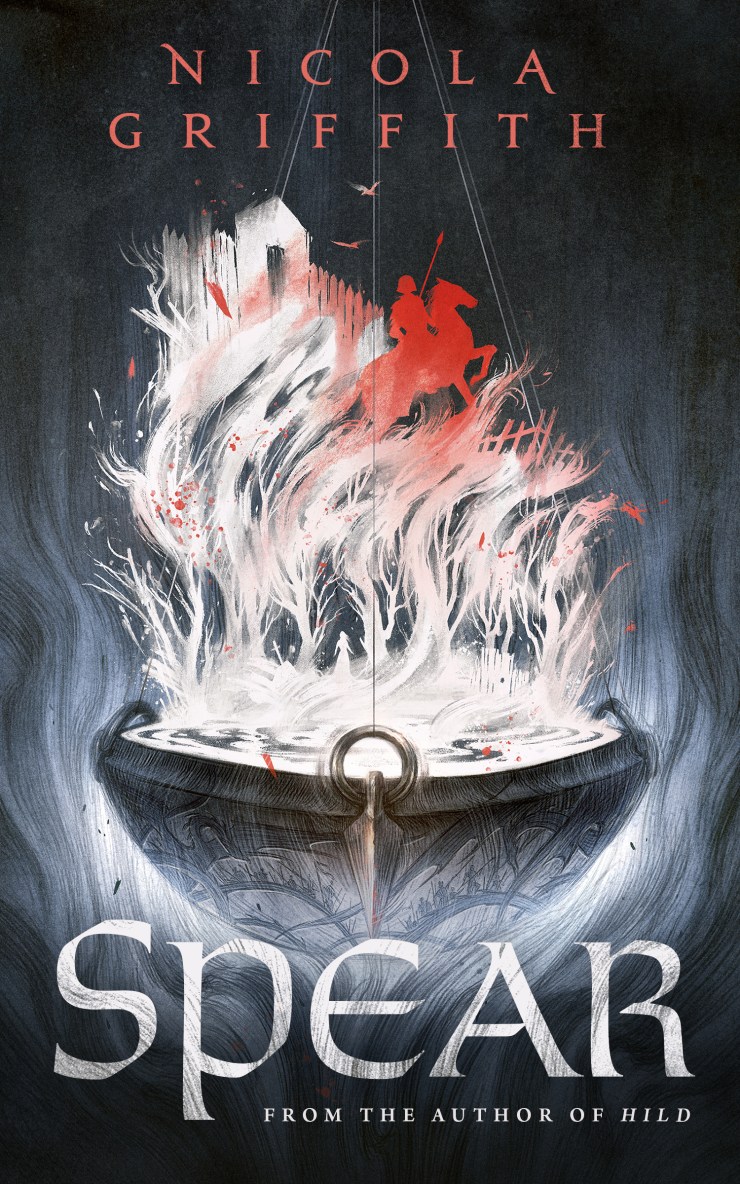- The Good: Inclusive retelling of Arthurian legends
- The Bad: Meandering plot
- The Literary: Literary and academic, with a focus on existing myths and historical accuracy
A girl with no name and many names grows up in the wild, in a cave with her mother. She longs to know of the world, each year exploring the forest around the cave a little farther. When she first encounters other people who speak strangely, she hides. She learns about Artos, king of Caer Leon, and dreams of a faraway lake. Despite sher mother begging her to stay, she leaves with a broken hunting spear and mended armor to find her true name and her place.
I love the first act of Spear, the slow discovery of the world through a child’s eyes—the longing to understand the natural world and find a place within it. The protagonist loves her mother, but finds her moody and confusing. She itches for stories and adventure and exploration, which she eventually makes for herself. She dresses in men’s clothing, as it’s more practical for a warrior on her first quest.
When she finally leaves, she finds she understands the natural world and animals better than anyone she meets. Her reflexes are fast and her fighting skills unrivaled. She has a few adventures and makes a name for herself, Peretur. Soon, the story fully solidifies as a retelling of the Arthurian legend of Percival, the more modern version of the name Peretur. The feminized and queer focus is also paired with a legend of the four treasures of the Tuath Dé, a mythical Celtic race with supernatural powers.
I like this story and enjoy reading it, but mostly from a more academic perspective. The plot is fine. But I linger over specific paragraphs of beautiful prose or choices to modernize an enduring myth. The epilogue brings to life how much passion and joy the author has for all the versions of King Arthur, and for historical accuracy—particularly from the 6th century.
Highly recommended for fans of Arthurian legends!
“I loved you, child, loved you so much I did not name you, for naming calls. But now you are leaving, and I will give you your name. The four treasures of the Tuath are the sword, which is given, the stone, which is hidden, the cup, which I have, and the spear. You are that spear. You are my Bêr-hyddur, my spear enduring. You are Peretur. Know that I do not remove my ward, and under my geas will remain hidden, even from you. Know, too: you have broken my heart.”
